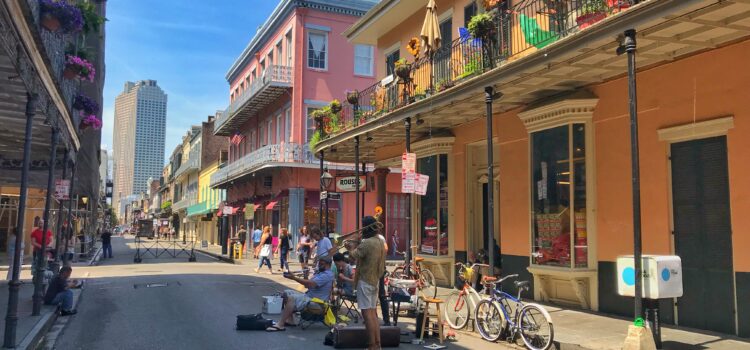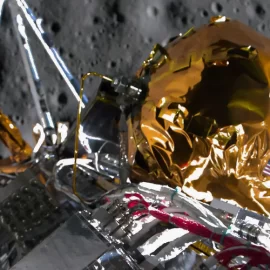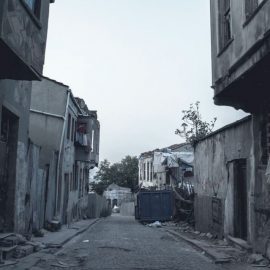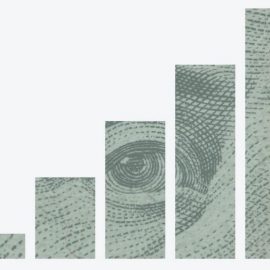

This article is an excerpt from the Shortform book guide to "Strangers In Their Own Land" by Arlie Russell Hochschild. Shortform has the world's best summaries and analyses of books you should be reading.
Like this article? Sign up for a free trial here .
What is the core of Louisiana politics? Why is Louisiana one of the most consistently Republican states despite low quality of life?
Louisiana politics are, and have been, consistently Republican for many years. There are clear consequences for everyday Louisianans to having pro-business policies that allow rampant corporate abuse.
So why are Louisiana politics so staunchly Republican? Read to find out.
Louisiana Politics Stay Conservative
The conservative state of Louisiana ranks near the very bottom of all 50 states across most quality-of-life measurements, including life expectancy, health outcomes, median income, educational attainment, and pollution. So why are Louisiana politics so determinedly Republican?
The GOP’s electoral dominance has resulted in a business climate that enables polluters to operate with a free hand. Despite their political loyalty, ordinary Louisianans have suffered extraordinary abuse at the hands of a largely unregulated corporate sector. Even when the negligence of petrochemical companies results in the wholesale destruction of a community (as happened in 2012 in a Louisiana town called Bayou Corne, when a drilling company accidentally created a massive sinkhole that forced the evacuation of the town) residents denounced government as the culprit. The conservative paradox leads these voters into a self-destructive feedback loop in which:
- They enthusiastically vote for politicians who promise to slash regulations on business and cut funding for agencies tasked with enforcing public safety.
- Understaffed and underfunded agencies lack the resources to properly enforce safety regulations, leading to industrial disasters.
- The failure of the government to prevent these disasters affirms voters and politicians in their belief that the problem lies with government—and, therefore, the only solution is to reduce its role even further by voting for more right-wing politicians.
Maintaining the Hierarchy
Despite the pervasive anti-government, anti-regulation rhetoric, conservative politics is quite accepting of state regulation—when it’s directed at certain social groups. This shows a disparity of Lousiaana politics.
In conservative states like Louisiana, pursuits and cultural totems associated with a certain form of white male masculinity are indeed lightly regulated. Highly individualistic, risk-taking behavior receives a light regulatory touch. Thus, state laws regarding the consumption and sale of liquor (even open containers in vehicles), the ownership of firearms, and the wearing of motorcycle helmets are indeed quite lax. For many Louisiana white men, being able to drink, own as many guns as you want, and ride your motorcycle without a helmet speak to the heart of what it means to be a man.
On the other hand, Louisiana employs some of the nation’s most heavy-handed and harsh regulation when it comes to the rights and prerogatives of women and minorities, including restrictive anti-abortion laws and a racially biased criminal justice system, showing the many issues of Louisiana politics.
Traditional Values and Political Loyalty
While many Louisiana Tea Party members may lament the loss of the natural environment and the old Cajun way of life at the hands of the petrochemical industry, they insist that they are grateful for the jobs and economic opportunities that these companies bring, in another paradox of Louisiana politics.
More than environmental concerns, many conservatives claim that their faith in God and their belief in traditional family values are most important to them—and that their commitment to these values is what cements their loyalty to the Republican Party.
For them, the federal government is the far bigger threat to their way of life, with liberal politicians like Barack Obama and Hillary Clinton representing a direct affront to their values.
Anti-Government Politics in Louisiana
As one of the most strongly Republican states in the country, Louisiana offers a mix of low-tax, low-regulation, anti-government, and anti-labor policies designed to lure businesses from other parts of the country (and around the world) to the state.
Right-wing politicians claim that these corporations bring much-needed tax revenue, investment, and jobs to the state. One such figure was Republican former Governor Bobby Jindal, who was elected in 2007 and re-elected in 2011, each time by large margins.
Jindal campaigned as an explicitly anti-environment candidate, promising to slash the state’s already meager environmental regulations in order to entice more extraction industry firms to Louisiana. A centerpiece of his administration was a $1.6 billion “incentive” package for industry, consisting of massive tax cuts and direct public subsidies to companies. Unfortunately, Jindal’s showering of state largesse on corporations diverted resources from the state’s health and education systems, resulting in the layoff of 30,000 nurses, teachers, and safety inspectors, among other public servants.
A Race to the Bottom
Jindal’s “race-to-the-bottom” approach to economic development, however, may prove to be nothing more than a massive giveaway of public resources to wealthy corporations, for scant returns in long-term growth.
One major study funded in large part by energy industry giant Sasol made the case that towns like those of southwest Louisiana needed to increase public investment in order to attract valuable, permanent white-collar engineering and chemistry jobs to the region.
The study argued that college-educated professionals want to live in places with high-quality public services like schools, hospitals, museums, and strong environmental protection—even if they have to pay higher taxes in order to live in such places. The private sector and public sector are not in competition. It’s more of a symbiotic relationship, and the private sector needs a robust public sector.
The Jobs Myth
Conservative Louisiana politics and politicians argue that the environmental degradation is a necessary price to pay for the jobs that the petrochemical companies bring to the state. If the federal government were to crack down and pass more aggressive anti-pollution regulations, they claim, the companies would desert the state and leave hardworking Louisianans jobless.
This was the rationale behind Jindal’s pro-corporate agenda. It would also have the added benefit of keeping “Big Government” away from Louisiana. After all, if billions of dollars in new corporate investment were set to pour into the state, there would surely be no need for Washington, D.C. and its overspending ways.

———End of Preview———
Like what you just read? Read the rest of the world's best book summary and analysis of Arlie Russell Hochschild's "Strangers In Their Own Land" at Shortform .
Here's what you'll find in our full Strangers In Their Own Land summary :
- What drives right-wing politics in America
- How a lack of empathy is increasing the partisan divide
- Why Republican politicians remain popular even if their policies don't help their voters






